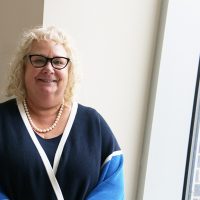
Laporte Vanessa
If reality TV has taught us anything, it’s that putting a bunch of strangers in a room for an extended period of time is a sure fire recipe for drama.
Unfortunately, “strangers+room+time” is also the standard recipe for an office. Mix in a dash of cultural disconnect, and office politics can head south fast.
At Immigration Refugees and Citizenship Canada (IRCC), Vanessa Laporte works as a Conflict Resolution Advisor to resolve conflicts between staff both domestically and abroad, including IRCC employees at Canada’s embassies and consulates, where local residents work under the supervision of Canada’s diplomats to process visas and immigration applications.
“You can have those cultural differences in Paris and London, just like you would in New Delhi and Dakar,” says Laporte, who completed Carleton University’s Graduate Diploma in Conflict Resolution (GDCR) in 2014.
“A lot of people make the wrong assumption that more westernized countries don’t experience those differences,” shares Laporte. “They absolutely experience it as well.”
Laporte credits her conflict resolution training with helping her strike the right balance in resolving these conflicts.
“It’s a fine balance between doing your homework and having that curious aspect,” she says, “instead of going in and assuming that you know what’s going on and know their perspective. Of course, you’re going to do your homework in terms of going into an embassy and understanding what’s going on there — the cultural dynamics of the region are a given. Then, when you are meeting one-on-one, you’re finding out what’s going on for them from their perspective, and finding out if they are seeing any cultural differences that are being brought about within the consulate. You’re finding out what their perspective is,,.what they think the other person’s perspective is. You’re getting to the interests of the individuals involved by essentially asking the parties what would you like the other person to know, and if they knew that, and you can have a conversation about that, how can things be different? How can things be improved?”